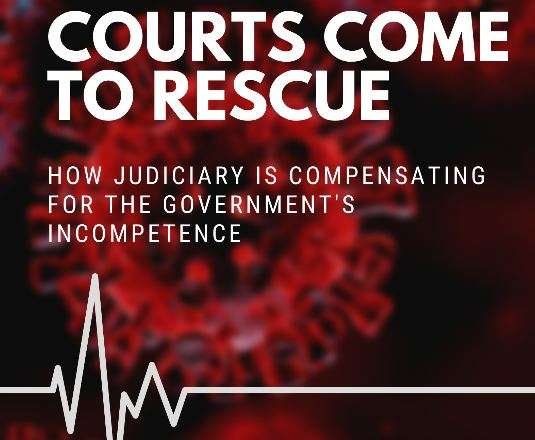“We were wrong” are three words that this government has never been seen saying. Any admission that takes place is tacit and backhand, and involves claiming victories and attacking critics.
This week, after much criticism, some good sense finally prevailed over this government. The unabashedly capitalist vaccine policy of leaving states to negotiate with manufacturers was partially rolled back, and the central government will now procure 75% of all the vaccines. The policy, which the Supreme Court called “irrational and arbitrary”, also mandated free vaccination for those aged above 45, but made those below it pay.
The Centre, which it seems was hoping till March that it doesn’t have to vaccinate every one and hence, didn’t place enough orders, has finally understood that it cannot simply wait out the pandemic.
For the first time in years, it looks like the Modi government is trying. In the last month, compulsory CoWIN registration has been revoked, advance payments have been made to three vaccine manufacturers and the foreign minister has visited the US to find ways to import and manufacture more doses. Desperate measures are also visible; such as the DGCI removal of systemic checks of bridge trials and batch testing for all major foreign vaccines and the Centre’s readiness to give foreign manufacturers indemnity against legal suits.
Understandably, the ruling Bharatiya Janata Party is angry about it’s recent loss in Bengal and anxious about next year’s Uttar Pradesh elections. It also perhaps understands that public suffering will have political consequences this time around, unlike after demonetisation. The fact that more than 80% of the population is still to get even the first dose should worry both us and the government, because it directly implies that another disastrous wave is highly likely.
The changed strategy is to follow the old strategy of self-set targets. Forget the 30 crore health workers and senior citizens that were to be vaccinated by July, the new target is 100 crore by December. Astronomical numbers would need to be vaccinated every day to make it happen; that is, of course, if the target isn’t changed before the deadline.
When we eventually do start to vaccinate on a war footing, decisions will need to be made and continuously remade on who needs to be given priority. Decisions that should be based on evidence and equity. India is too big to vaccinate in one go and vaccinating people on a first come, first served basis would be an inefficient way of going about it. And lockdowns on their own only buy time, unless combined with high rates of vaccination.
But in celebrating the minor victory of a partial rollback of the policy, one question we haven’t asked enough is: Where is the accountability for wasting time and lives on a flawed policy? Nowhere, as far as the eyes can see.
Sidenote:
In a survey of 77 epidemiologists from 28 countries, carried out by The People’s Vaccine Alliance, two-thirds thought that we had a year or less before the virus mutates to the extent that the majority of first-generation vaccines are rendered ineffective and new or modified vaccines are required.
This editorial titled ‘Old Policy, New Target: On India’s Vaccine Policy‘ has been written by Tushar Kohli and represents the collective view of the Editorial Team.



